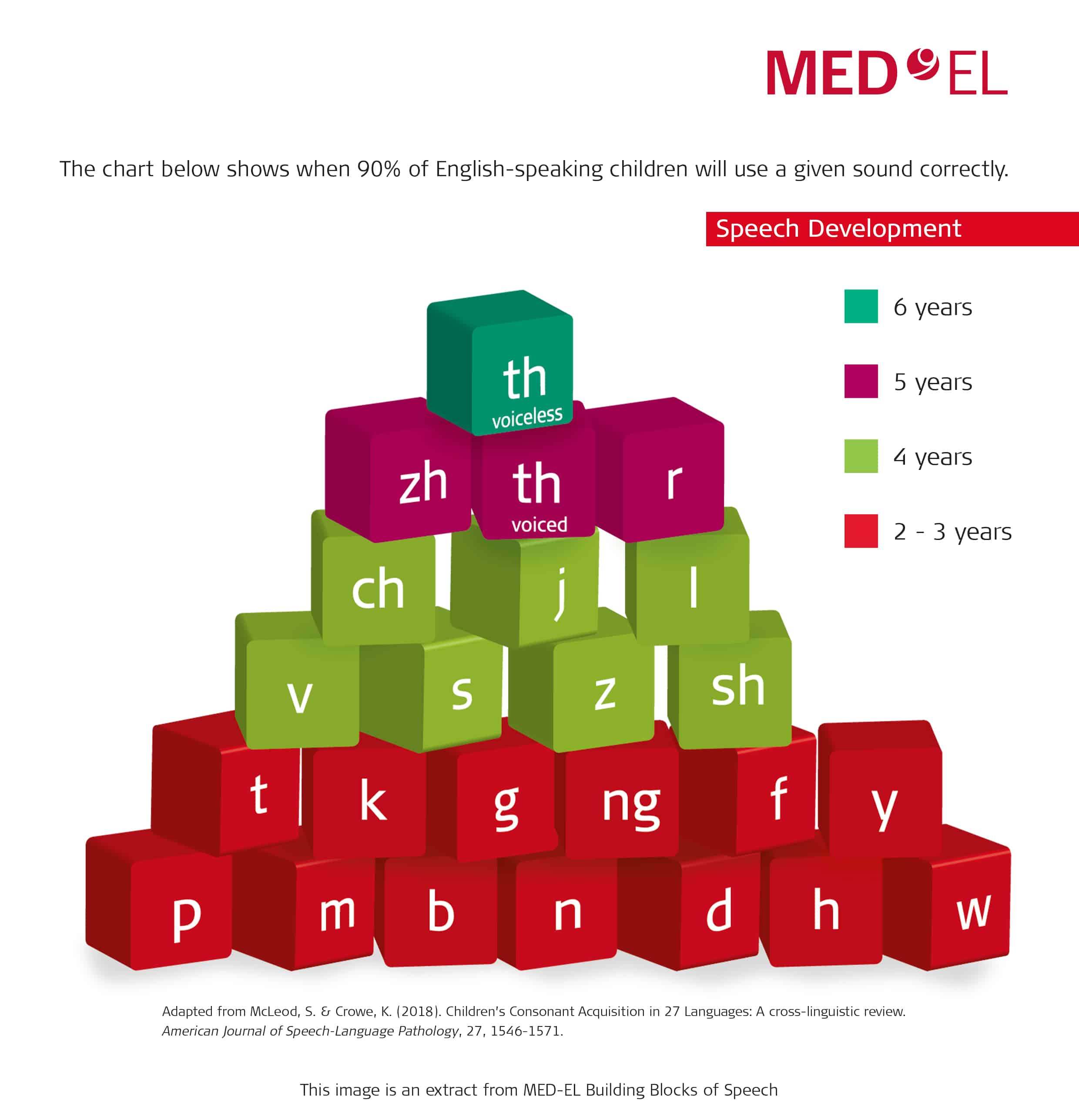
MED-EL
Published May 27, 2016
8 Ways to To Help Your Child Speak Clearly
What’s the big trick behind being able to speak clearly? Being able to hear other people speak clearly. Children with hearing implants need regular listening practice in order to develop or improve their speaking skills. Find out what you can do to support your child’s language skills in everyday life.

1. Help Your Child Wear Their Hearing Devices
The secret to talking clearly is being able to hear well with hearing devices all day. Children learn to speak by listening to and copying the speech of those around them.If your child has not had their hearing tested since their newborn hearing screening and you are worried your child isn’t talking or is difficult to understand when compared to other children their age, ask for a referral to a pediatric audiologist for a hearing test for your child. Your child’s school may also have a hearing clinic or referral system in place.
2. Learn About Typical Speech Development
Think about the sounds your child can say in single words and the ones they have difficulty with or leave out. These may be normal speech sound errors for a child their age. The building blocks below show which speech sounds children are expected to use at different ages. This is based on data from English-speaking children. For example, a child who is 4 years of age would typically be able to say all of the red and light green sounds in single words. They would not yet be expected to use the maroon or dark green sounds.

- *’ng’ as at the end of the word ‘fang’
- *’th voiced’ refers to a loud ‘th’ sound such as at the beginning of the word ‘those’
- *’th voiceless’ refers to a quiet or whispered ‘th’, such as at the beginning of the word ‘think’
- *’zh’ as in ‘measure’
This image is an extract from MED-EL Building Blocks of Speech. Find more technical information and download the free poster on the MED-EL Professionals Blog.
3. Listening First
Talk first before you show or do something. This will help your child develop their listening skills by listening to your speech. Add in visual cues to help your child understand only after they have had a chance to listen to the information. This helps them develop the auditory area of their brain, which is what they’ll use when monitoring their own speech.
4. Talk With Your Child
Follow your child’s lead and engage in a back-and-forth conversation to support their speech and language development. This gives them practice listening to your correct adult production of sounds and words and imitating those words as well. Just remember not to ask too many questions. Try to comment instead.
5. Move Close to Your Child
Distance reduces the volume and clarity of your speech. Move closer to your child to provide them with the best possible model of sounds and words, so they can listen and learn more easily.
6. Remove Noise
Background noise such as the TV or traffic noise will make it more difficult to listen to, learn from, and copy your correct speech. Remove background noise when talking with your child so they can hear you more easily. Remember, hearing well is a prerequisite for talking well.
7. Acoustic Highlighting
Acoustic highlighting is emphasizing words so that they stand out. If there are words or sounds your child is working on, you can highlight them by saying them slightly louder or slightly slower than the other words, or using a “sing-song” voice when saying them. This helps your child to focus on the specific word or the specific sound in the word.
8. Ask Questions with Choices
Ask questions that have multiple options. For example, if you’re focusing on developing a particular sound like /g/ you could say “Do you want to go to the park, or go to grandma’s?”. This gives you the chance to repeat certain words targeting the particular sound, so your child has two chance to hear it and a chance to practice saying it.
References

MED-EL
Was this article helpful?
Thanks for your feedback.
Sign up for newsletter below for more.
Thanks for your feedback.
Please leave your message below.
Thanks for your message. We will reply as soon as possible.
Send us a message
Field is required
John Doe
Field is required
name@mail.com
Field is required
What do you think?
The content on this website is for general informational purposes only and should not be taken as medical advice. Please contact your doctor or hearing specialist to learn what type of hearing solution is suitable for your specific needs. Not all products, features, or indications shown are approved in all countries.

MED-EL

MED-EL


